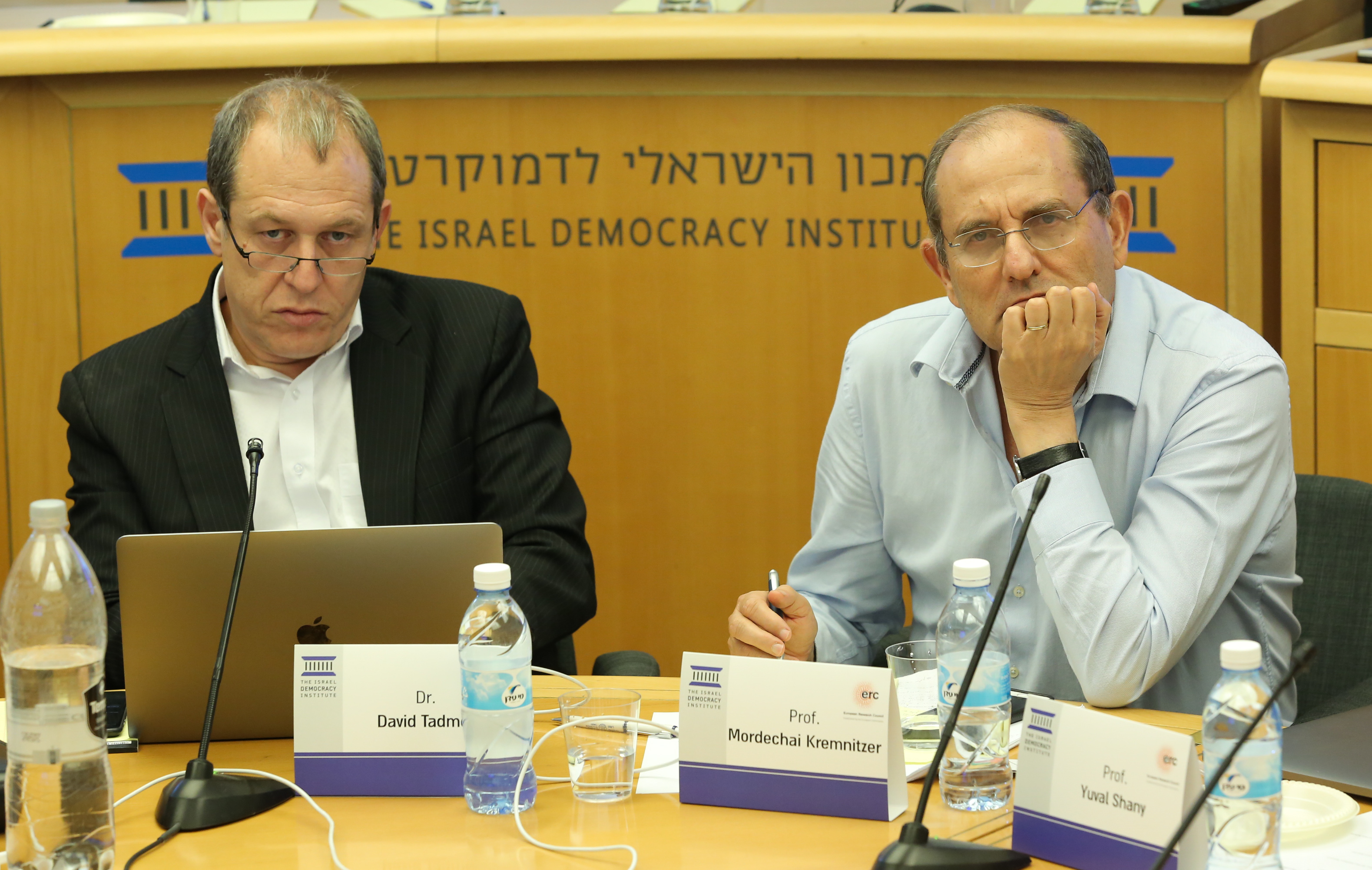Workshop: The Consideration of Rights in the Development of National Security Policy
Human rights discourse usually focuses on the role of courts, and on after-the-fact judicial review of existing government policies. Much less attention is paid to the question of how the other branches of government – the legislature and the executive - fulfill their obligations to respect human rights in the creation of policy to begin with.
The workshop sought to shine a spotlight on the role of rights considerations in the policy process itself, in an area raising significant rights dilemmas: the field of counter-terrorism. It took place against the backdrop of a research group (part of IDI’s Proportionality in Public Policy Program), focusing on the way human rights considerations were taken into account in the formulation of counter-terrorism policies and laws in three different jurisdictions: the 2017 EU Directive on Combating Terrorism; the German Counter-Terrorism Database Act and Data Retention Act; and the 2016 Israeli Counter-Terrorism Act.

The first part of the day was devoted to small-group discussion of the project’s works-in-progress and of some of the broader theoretical questions they raise. The second part included a roundtable with policy makers and civil society representatives, providing an opportunity to discuss some of the practical dilemmas faced by decision-makers and other stakeholders, and consider possibilities for interventions that may better integrate rights as a consideration in the process.
The Proportionality in Public Policy Program is supported by a grant from The European Research Council.
Prof. Mordechai Kremnitzer, IDI Vice President, Research
Dr. Raanan Sulitzeanu-Kenan, Co-Director, IDI Proportionality
Prof. Dr. Clemens Arzt, Berlin School of Economics and Law; Dr. Ittai Bar-Siman-Tov, Bar Ilan University; Prof. Claude Berrebi, The Hebrew University of Jerusalem; Prof. Amichai Cohen, The Israel Democracy Institute and Ono Academic College; Prof. Fiona De Londras, University of Birmingham; Dr. Andrej Lang, University of Halle-Wittenberg; Dr. Doreen Lustig, Tel Aviv University; Adv. Lila Margalit, The Israel Democracy Institute; Prof. Barak Medina, The Israel Democracy Institute and The Hebrew University of Jerusalem; Dr. Yaniv Roznai, IDC Herzliya; Prof. Yuval Shany, The Israel Democracy Institute and The Hebrew University of Jerusalem; Adv. Talya Steiner, The Israel Democracy Institute.
The Consideration of Rights in the Development of National Security Policy
9:15-9:30 | Opening Remarks: Yohanan Plesner, President, The Israel Democracy Institute
Prof. Mordechai Kremnitzer, IDI Vice President Research
9:30-10:30 | Prof. Fiona De Londras
Proportionality and the Making of the EU Counter-Terrorism Directive
Respondent: Prof. Yuval Shany
Group Discussion with Workshop Experts
10:30-11:30 | Dr. Andrej Lang
The Consideration of Rights in the Political Process and the Making of Anti-Terrorism Policies in the Federal Republic of Germany
Respondent: Prof. Dr. Clemens Arzt
Group Discussion with Workshop Experts
11:45-12:45 | Adv. Lila Margalit
Rights and Proportionality in the Creation of the Israeli Counter-Terrorism Act
Respondent: Dr. Ittai Bar-Siman-Tov
Group Discussion with Workshop Experts
13:45-15:15 | Beyond the Case Studies: Broader Conclusions and Common Themes. What kinds of broader conclusions can be drawn from the research? What possibilities exist for generalizing findings between jurisdictions and institutions? (Group discussion with Workshop Experts)
15:15-15:30 | Coffee Break
15:30-18:30 | Roundtable with policy makers, civil society representatives and academic experts, exploring questions such as:
How are rights considerations taken into account in the development of counter-terrorism policy? Who are the actors involved and what processes are used?
Which factors serve as barriers to effective consideration of rights and proportionality in the development of security policy or legislation? Which factors serve as facilitators?
What kinds of information do policy makers need in order to allow for effective consideration of rights in the policy process?
What can be learned from a comparative perspective?
